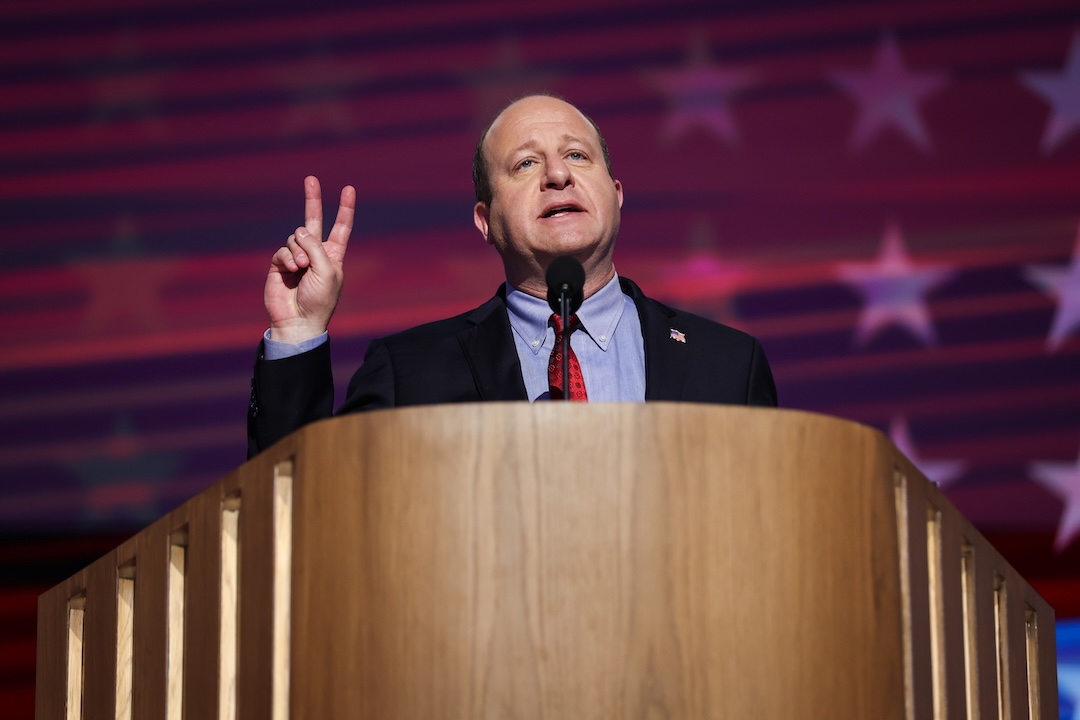Only weeks after the tech industry tried and failed to convince federal lawmakers to shield artificial intelligence companies from regulation, a bipartisan group of pro-business lawmakers is spearheading state legislation that would prohibit consumers from suing businesses whose AI potentially violates consumer protection laws.
In recent years, companies have been accused of using AI technologies for a variety of unfair and discriminatory practices, from increasing airline fares and raising rents to price-gouging consumers and denying medical care.
Under pressure from tech giants after their legislative loss in Washington, Colorado’s Democratic governor, Jared Polis, has called an emergency session of his state’s legislature to take up legislation that would weaken state AI regulations passed last year. One of the bills slated to be introduced in the session is framed as establishing that AI systems must comply with state consumer protection laws — something that some experts say is already required.
But the bill would also strip individuals of their right to sue AI businesses that potentially violate the Colorado Consumer Protection Act — a law meant to guard consumers against deceptive and unfair business practices. Instead, only the state’s attorney general would be permitted to bring such cases under the law.
“The Attorney General has exclusive authority to enforce” AI-related issues under the Colorado Consumer Protection Act, the bill reads.
In practice, this would bar local district attorneys, watchdog groups, and individual citizens from bringing lawsuits against tech giants, according to Colorado representative Javier Mabrey (D).
“By saying the Attorney General is the only avenue of enforcement of the Colorado Consumer Protection Act, they’re saying that for [the AI] industry, there are fewer avenues for people to seek justice,” said Mabrey.
The Big Tech Immunity Act
All four of the bill’s sponsors — Sen. Judy Amabile (D), Sen. Lisa Frizell (R), Rep. William Lindstedt (D), and Rep. Michael Carter (D) — were endorsedin 2024 by the Colorado Chamber of Commerce, which represents businesses across the state. In 2023, the lobbying group awarded Ambile, Frizell, and Lindstedt “MVP Awards” for collaborating with the chamber and taking “hard votes in defense of business.” (Carter had not yet been elected.)
In its 2025 legislative agenda, the Chamber states that ensuring “updates to artificial intelligence regulations preserve economic competitiveness” is a top priority.
In an email to the Lever, Lindstedt wrote that, “Essentially, the bill clarifies that AI decision-making is not a defense against deceptive trade practices or discrimination, holding developers accountable. It’s entirely appropriate for the [Attorney General] to be responsible for protecting Coloradans, and it is the case under many statutes.”
He added, “We are still working on the bill and potential accountability mechanisms throughout the process.”
The other bill sponsors did not respond to a request for comment before publication.
The bill’s three Democratic sponsors are members of the newly formed Colorado Opportunity Caucus, a group of fifteen Democrats that aims to focus on “the kitchen-table concerns that affect paychecks, livelihoods and futures.” Earlier this year, the group introduced a bill that would make it harder to sue builders for construction defects in order to incentivize more condo construction, legislation backed by Polis. Such efforts have created a rift in the Colorado Democratic Party between progressive lawmakers and their more moderate colleagues, like those in the Opportunity Caucus.
“The Chamber of Commerce and organizations that used to depend on Republicans to do their bidding have realized that they need to appeal to Democratic lawmakers in this blue state,” said Mabrey.
Gov. Polis also “doesn’t want any AI regulation,” said Colorado representative Brianna Titone (D), whose coalition of labor groups calls the new bill the “Big Tech Immunity Act.”
“[Polis] wants something to be on the books that looks like regulation,” said Titone. But really, the bill “provides more immunity to the tech companies.”
The legal-shield legislation follows several political losses for AI interests. This July, the Senate voted to exclude a provision in the Republican megabill that would have barred states from regulating AI over the next ten years. Colorado businesses are also unhappy about a first-in-the-nation antidiscrimination AI law that passed in the state last year, which protects people from potential bias or discrimination embedded in AI systems.
The new Colorado bill now being introduced is a stealthy way for business interests to undermine core consumer protections by weakening enforcement of the Colorado Consumer Protection Act, said David Seligman, executive director of the Denver-based progressive legal nonprofit Towards Justice.
“This is a pretty standard playbook for corporate interests to try to say, ‘Look, we’re not going to allow private right of action for regular people to bring lawsuits forward to attack wrongdoing,’” said Seligman, who is currently running for Colorado attorney general. “They know that it’s much, much harder to police wrongdoing when regular people can’t come forward and bring lawsuits.”
The US Chamber of Commerce Institute for Legal Reform, which advocates for business rights, argues on its website that individuals’ right to file lawsuits “can lead to litigation abuse because plaintiffs’ lawyers are financially incentivized to file as many lawsuits as possible.” According to the organization, “private rights of action do not enhance consumer privacy or protection.”
